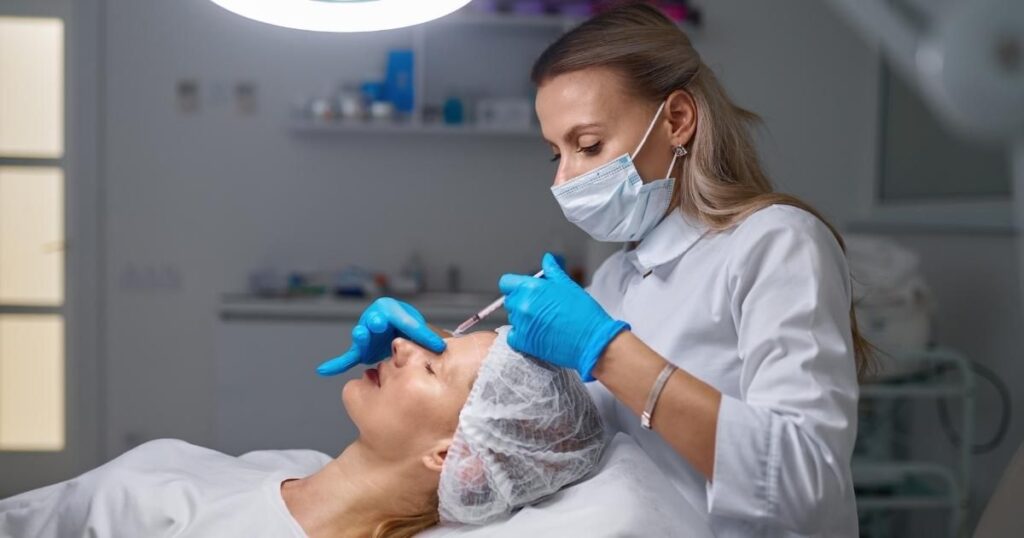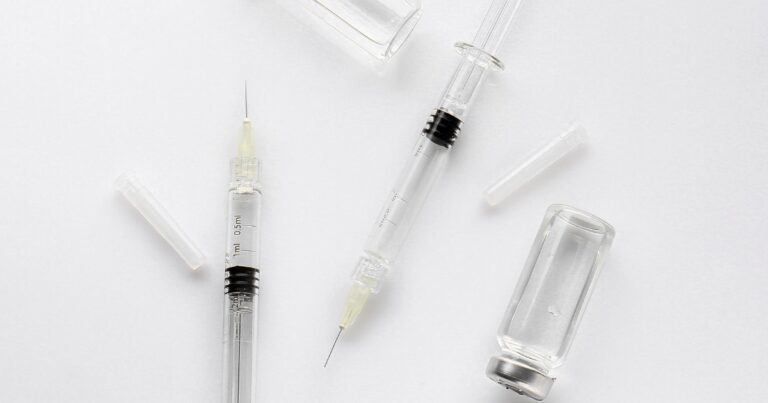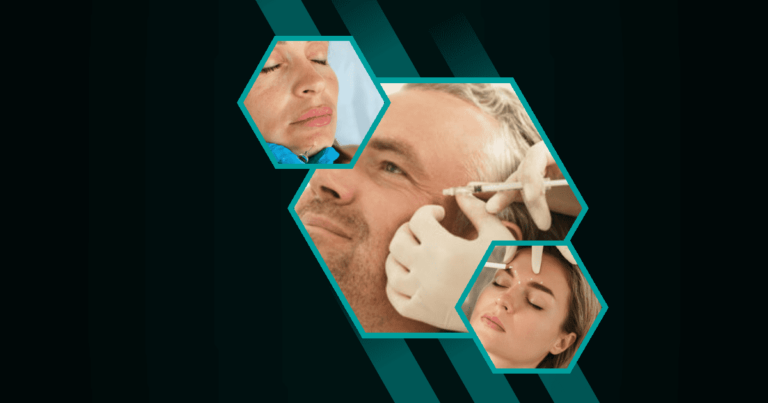The process of ‘Choosing Your Filler Specialist’ can appear daunting, especially for first-timers considering dermal fillers. The right choice will significantly influence your appearance and safety. Make an informed decision by following these simple but essential tips.
How to Choose the Right Specialist for Filler?

When choosing a filler specialist, consider the following:
- Experience: Look for a specialist with years of experience with dermal fillers. This experience should include handling various cases, from simple procedures to complex treatments.
- Specialisation: Does the specialist focus solely on facial aesthetics, or is their practice more general? A specialist focused on dermal fillers can often bring more profound knowledge and expertise.
- Certification: Your specialist should be certified by a recognised medical board or organisation. This ensures they’ve undergone proper training.
- Before and After Photos: Request to see examples of the specialist’s previous work. Before and after photos can provide a clear picture of the potential results.
- Reviews: Check online reviews from other clients. They can provide valuable insight into a specialist’s skills and patient care.
- Comfort Level: Trust your instincts. You should feel comfortable with the specialist, their approach, and their clinic. This can make your experience more positive.
- Consultation: A good specialist will offer a consultation before treatment. During this session, they should answer all your questions and discuss the treatment plan.
- Follow-Up Care: Determine if the specialist offers follow-up care after the procedure. This is crucial for managing potential side effects and ensuring the best results.
- Transparency: The specialist should be open about costs, risks, and the realistic outcomes of the procedure.
What Should You Ask During Your Consultation?
Prior to proceeding with treatment, you should engage in a thorough discussion with your specialist.
| Question | Overview |
| What is your medical degree and/or certification? | This will help you to ensure that your filler specialist is qualified to perform the procedure. |
| What type of dermal fillers do you use? | There are many different types of dermal fillers available, so it is important to ask your specialist which type they use and why. |
| What are the risks and side effects of dermal fillers? | It is important to be aware of the risks and side effects of dermal fillers before you have the procedure. |
| How long will the results of the procedure last? | The results of dermal fillers can vary depending on the type of filler used and the individual’s body. |
| What is the cost of the procedure? | The cost of dermal fillers can vary depending on the type of filler used, the amount of filler used, and the location of the procedure. |
| What are the aftercare instructions? | It is important to follow the aftercare instructions carefully to reduce the risk of complications. |
| What are your qualifications and experience with dermal fillers? | This will help you to ensure that your filler specialist is qualified to perform the procedure. |
| Can you show me before and after photos of your work? | This will help you to see what results you can expect from the procedure. |
| Do you have any questions for me? | This is your chance to ask any questions that you have about the procedure. |
What Kind Of Certifications And Degrees Should a Filler Surgeon in Dubai Have?

In Dubai, a filler surgeon, often known as an aesthetic or cosmetic doctor, should have the following qualifications and certifications:
Book A Consultation With Dr Tarek Bayazid
Top-rated Plastic Surgeon For Fillers in Dubai
Installment Plan Available
- Medical Degree: The fundamental requirement is a degree in medicine. This could be a Bachelor of Medicine, Bachelor of Surgery (MBBS), or an equivalent degree from a recognised medical school.
- Medical License: They must have a valid medical license in Dubai. The Dubai Health Authority (DHA) provides medical licenses and regulates healthcare professionals in the city.
- Specialisation in Dermatology or Plastic Surgery: Often, doctors who offer dermal filler treatments are dermatologists or plastic surgeons. After their basic medical degree, they would have additional years of study in their respective specialities.
- Certification in Aesthetic Medicine: While not always required, it is beneficial if the doctor has a certification in aesthetic medicine from a recognised institution. This indicates that they have undergone specific training in cosmetic procedures, including dermal fillers.
- Continuous Professional Development: The field of aesthetic medicine constantly evolves with new techniques and products. A good practitioner will have evidence of continuous professional development (CPD) in this area.
Why Aftercare and Follow-Up While Choosing Your Filler Specialist?

The importance of aftercare and follow-up appointments can’t be overstated in any dermal filler procedure. Here’s why:
- Monitoring Recovery: Dermal fillers are generally safe, but there can be side effects, as with any procedure. Aftercare appointments allow the surgeon to monitor your recovery, manage potential side effects, and ensure the healing process goes smoothly.
- Assessing Results: Dermal fillers can take a few days or weeks to settle into their final shape. Surgeons use follow-up appointments to evaluate results and make any necessary adjustments.
- Providing Reassurance: Post-procedure, you might have questions or concerns. Regular follow-ups provide an opportunity to address these concerns and reassure you about the normalcy of your recovery process.
- Planning Future Treatments: Dermal fillers are temporary, so future treatments may be necessary to maintain your results. Follow-up appointments are a good time to discuss this with your surgeon.
- Building Trust: Regular aftercare and follow-up appointments build trust between you and your surgeon. This trust is essential for a comfortable and positive treatment experience.
What To Do If You Notice a Red Flag While Choosing a Filler Surgeon?
It’s essential to remember that choosing the right surgeon is about ensuring your safety and satisfaction. Pay attention to red flags because a clinic offers a good deal or convenient appointment slots. Choosing the right professional for your treatment is always worth the effort.
Some red flags to watch out for can include:
- Lack of Transparency: If the surgeon is unclear about costs, potential risks, or realistic results, it’s a big red flag.
- No Consultation: A proper consultation is an integral part of the process. If a surgeon is ready to proceed without one, it’s a reason for concern.
- Hard-Selling Tactics: Be wary of a surgeon who pushes for more treatments than you want or need.
- Lack of Proper Certification or Training: Ensure the surgeon has the qualifications and certifications. You should consider an offer of proof a red flag if they cannot provide it.
If you notice any red flags, taking them seriously is essential. Here’s what you should do:
- Do More Research: If something seems wrong, delve deeper. Do additional research, read reviews, or ask about the surgeon’s reputation.
- Seek Second Opinions: If you’re uncertain, seek a second opinion. You can consult with other filler surgeons or reach out to past patients.
- Ask Direct Questions: If you notice a potential red flag, address it directly with the surgeon. Their response can provide insight into their professionalism and honesty.
- Trust Your Gut: Sometimes, your intuition can be a powerful tool. A surgeon may need to be consulted if something doesn’t feel right.
Choosing your filler specialist is an indispensable step in your journey towards enhancing your appearance. Finding a highly qualified, experienced professional invests in your safety and the best possible results. Make sure you feel better as well as look better!
Let’s take your aesthetic journey to the next level together. With years of experience in dermal fillers and a commitment to patient care, Dr Tarek can guide you through the process with expertise and compassion. Remember, Choosing Your Filler Specialist is an investment in yourself, so why not opt for the best? Book a consultation with Dr Tarek today and step into a more confident, radiant you!








